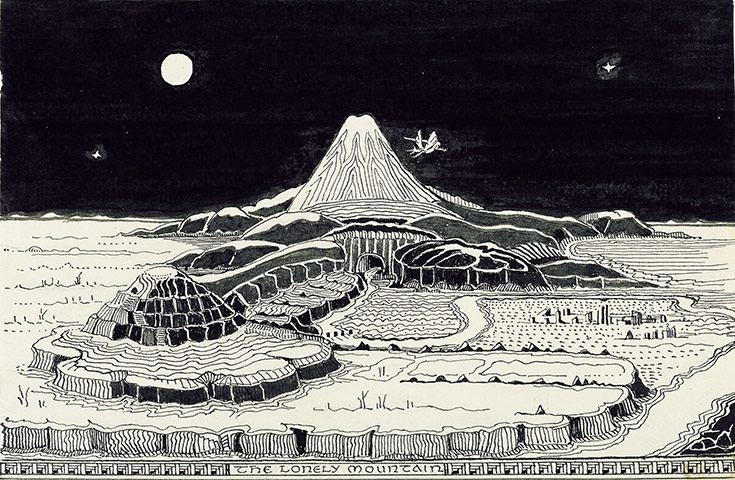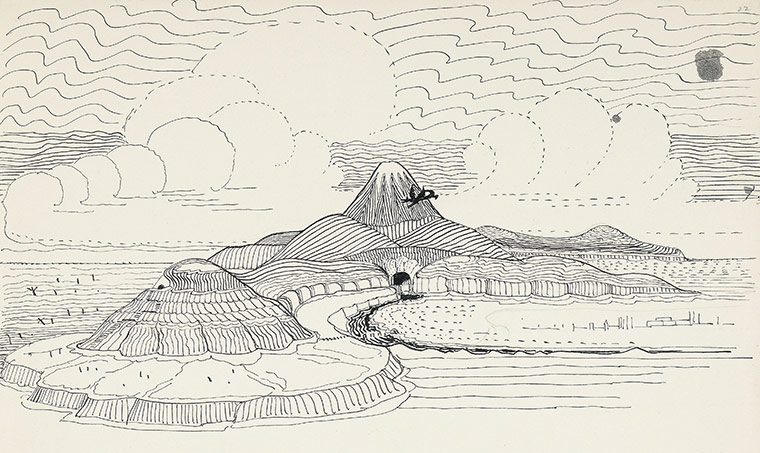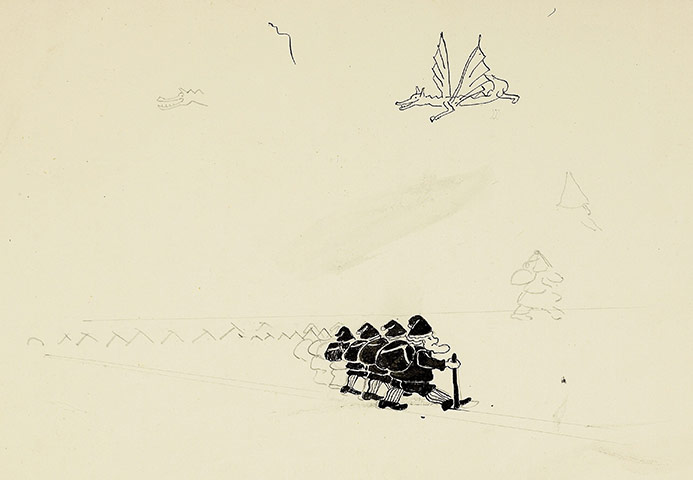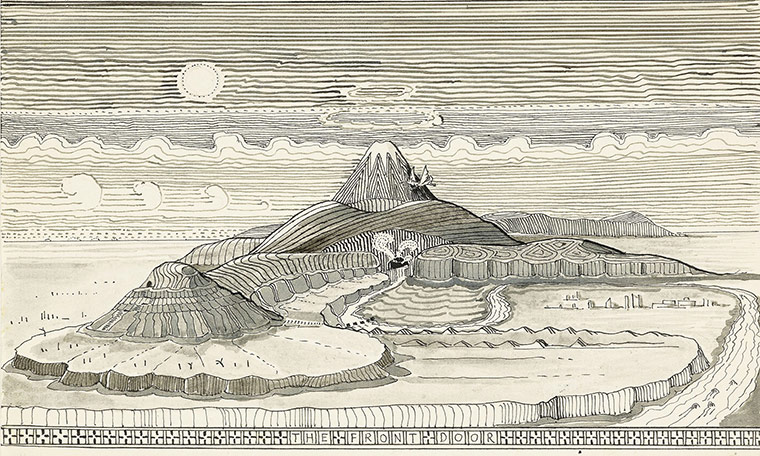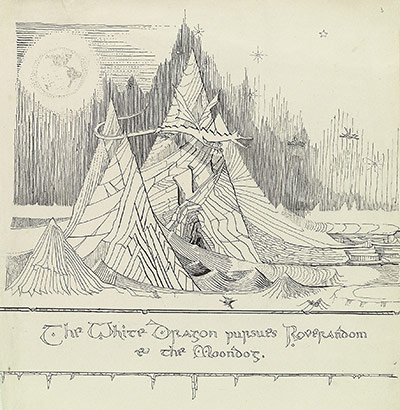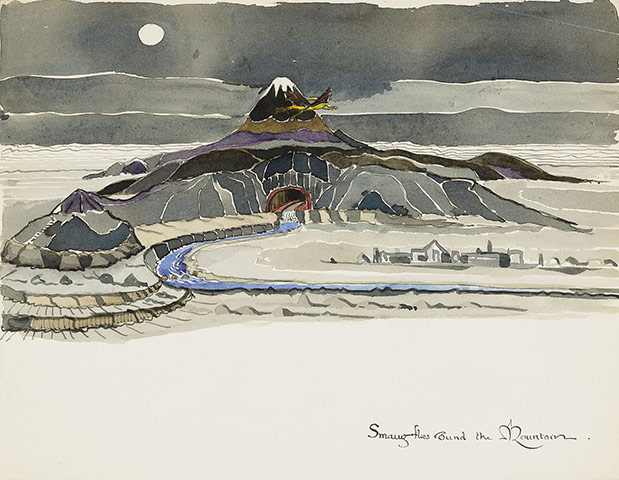Saturday, October 5, 2013
Durin,s Day When By theonering
When exactly is Durin’s Day in The Hobbit?
OCTOBER 5, 2013 at 5:42 AM BY DEMOSTHENES ![]() -
-
 When exactly is Durin’s Day? For various reasons, including the non-exact correlation of the Shire Calendar and our modern Gregorian calendar, it’s quite hard to know for certain.
When exactly is Durin’s Day? For various reasons, including the non-exact correlation of the Shire Calendar and our modern Gregorian calendar, it’s quite hard to know for certain.
In this extensively researched piece, DarkJackal uses Tolkien’s notes as published in John D. Rateliff’s The History of the Hobbit to explains why there are conflicting theories… and, in a very Tolkienian fashion, no definitive or easily settled upon answer.
Confusticate and Be-bother these Dates! The Durin’s Day dilemma
by DarkJackal
Having read a number of articles on Durin’s Day, including various attempts to assign a date to it within the story, and to predict it in our modern world, I feel compelled to write my own brief (ha!) essay. My approach to this is two-fold: First – take Excedrin for the headache this issue is causing. Second – quote John D. Rateliff’s The History of the Hobbit until things begin to make sense.
“It was the start of the dwarves new year, when the last moon of autumn and the first sun of winter appeared in the sky together.” – Gandalf (The Hobbit: An Unexpected Journey)
Many Tolkien enthusiasts estimate Durin’s Day of 2941 (which Thorin Oakenshield said happens towards the end of autumn, but not necessarily the last day of autumn, as Gandalf stated in the film) to have occurred in October. You can see how they arrived at this conclusion in the following articles:
The Moon and Durin’s Day – by Lalaith
Was Smaug Slain Oct 26, 2941 TA? – by Auraran
Durin’s Day 2013 – by Ask About Middle Earth
Is Durin’s Day Upon Us? – by The Dwarrow Scholar
Timeline/Chronology for “The Hobbit” – by Douglas Wilhelm Harder
Other authors calculate that Durin’s Day in our world would happen in December, based on our own definition of Autumn:
Observing Durin’s Day – by Kristine Larsen
Predicting Durin’s Day – by Iduna
 The reason for the difference of approximately two months comes from the different interpretations of the term “autumn”. Astronomically speaking, the end of autumn is around December 21 (for those in the Northern Hemisphere). If you disregard the astronomical component of it, then you could argue autumn can mean different things to different cultures. It does in our world, so why not in Tolkien’s?
The reason for the difference of approximately two months comes from the different interpretations of the term “autumn”. Astronomically speaking, the end of autumn is around December 21 (for those in the Northern Hemisphere). If you disregard the astronomical component of it, then you could argue autumn can mean different things to different cultures. It does in our world, so why not in Tolkien’s?
Unfortunately Tolkien never created a calendar for the dwarves, and because he also says that the seasons of Middle-earth have no specific beginning or ending dates, it is possible the dwarves may view the beginning and ending of autumn as occurring on different dates than the hobbits, or elves, or men did. Unfortunately there is nothing I know of in the canon to confirm or deny this, but Tolkien did have this to say regarding the names of months used in The Lord of the Rings:
“…the seasonal implications of our names are more or less the same, at any rate in the Shire. It appears, however, that Mid-year’s Day was intended to correspond as nearly as possible to the summer solstices. In that case the Shire dates were actually in advance of ours by some ten days, and our New Year’s Day corresponded more or less to the Shire January 9.” (The Return of the King, Appendix D).
This becomes important to our discussion further on, since Tolkien uses both the Shire calendar and the Gregorian calendar in his (unpublished) notes. We also know that, at least in The Lord of the Rings, events take place “‘in the Northern Hemisphere of this earth: miles are miles, days are days, and weather is weather’” (Rateliff 827).
Bootnote: Having read all the articles, I agree with DarkJackal, headache tablets (or whisky!) is in order. However, Rateliff seems to indicate Tolkien was leaning toward October 19 as the Gregorian date it would have occurred on in TA 2941 but just couldn’t make the numbers fit and eventually gave up. I think?
Friday, October 4, 2013
Wednesday, October 2, 2013
J.R.R. Tolkien art for The Hobbit.
Art of the Hobbit: Never-Before-Seen Drawings by J.R.R. Tolkien
by Maria Popova
A lively new look at one of the most beloved fantasy stories of all time.
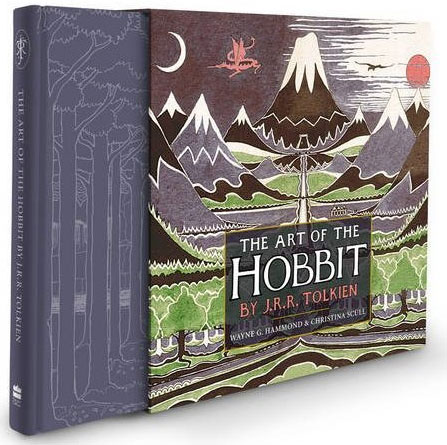 In October of 1936, J.R.R. Tolkien delivered to his publisher the manuscript of what would become one of the most celebrated fantasy books of all time. In September of the following year, The Hobbit made its debut, with 20 or so original drawings, two maps, and a cover painting by Tolkien himself. But it turns out the author created more than 100 illustrations, recently uncovered amidst Tolkien’s papers, digitized by Oxford’s Bodleian Library, and freshly released in Art of the Hobbit — a magnificent volume celebrating the 75th anniversary of The Hobbit with 110 beautiful, many never-before-seen illustrations by Tolkien, ranging from pencil sketches to ink line drawings to watercolors. It’s a fine addition to our favorite peeks inside the sketchbooks of great creators and digitization projects in the humanities, and a priceless piece of literary history.
In October of 1936, J.R.R. Tolkien delivered to his publisher the manuscript of what would become one of the most celebrated fantasy books of all time. In September of the following year, The Hobbit made its debut, with 20 or so original drawings, two maps, and a cover painting by Tolkien himself. But it turns out the author created more than 100 illustrations, recently uncovered amidst Tolkien’s papers, digitized by Oxford’s Bodleian Library, and freshly released in Art of the Hobbit — a magnificent volume celebrating the 75th anniversary of The Hobbit with 110 beautiful, many never-before-seen illustrations by Tolkien, ranging from pencil sketches to ink line drawings to watercolors. It’s a fine addition to our favorite peeks inside the sketchbooks of great creators and digitization projects in the humanities, and a priceless piece of literary history.
In creating the artwork for The Hobbit, Tolkien borrowed from a short story he had written for his son Michael, titled “Roverandom.”
Also included are conceptual sketches for the now-iconic dust jacket cover painting of the mountains Bilbo Baggins transverses in his adventures.
HarperCollins publisher David Brawn observes The Hobbit’s unfair eclipse in The Lord of the Rings’ shadow:
People have celebrated Tolkien as a writer for years — you haven’t been able to get away from him since all the books of the century polls. But The Lord of the Rings has always been the focus since it was published in 1954 — it’s a much more grown-up, significant book. It has overshadowed The Hobbitas a more old-fashioned, children’s book, which has become known in the context of The Lord of the Rings. The anniversary allows us to move the spotlight back on to the book which started it all.”
A rare piece of cross-disciplinary creativity from the mind of one of modern history’s greatest creators, Art of the Hobbit is equal parts literary treasure and treat of art, exploring the notion of the author as designer — a particularly timely concept in the age of self-publishing and disciplinary cross-pollination in the making of books.http://www.brainpickings.org/index.php/2011/11/01/art-of-the-hobbit/
Tuesday, October 1, 2013
An Interpretive Dance From Next Media Animation
Now the other side of the coin to the viral video I think this can only be settled by a Dance off.
Templar Tuesday
Time to show some love to eiher your heros or the villins of more games and stories you can shake a cudgel at THe Templars.








